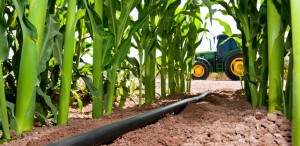New Bacterium Protects Crops; May Become Integral Part of Ecosystem

Research confirms that disease-fighting bacterium agent protects crops and promotes growth
Research at the University of Massachusetts has resulted in the discovery of a bacterium that can be used as a biological agent for protecting crops from fungus and disease, reported an article from AgProfessional. According to researchers, the agent not only protects plants from disease, but it also promotes growth without the use of environmentally harmful chemicals.
The agent, officially called B. amyloliquifaciens, has been licensed to be marketed as part of plant soil treatment systems from LidoChem, Inc. AgProfessional reported that researchers from UMass expect the bacterium to become an integral part of ecosystem management because “It gives the plant an earlier start and provides early protection against pathogen attack.”
Haim Gunner, UMass Amherst professor emeritus of environmental sciences, claimed that the motivation behind several years of research was to develop a protective agent that helps to return the ecosystem to a self-sustaining state free of unnatural systems.
According to the article, since Gunner has been involved in environmental sciences at UMass, his goal has been to develop a “natural, biological way to control agricultural pests without using environmentally toxic chemicals such as DDT and organophosphates.” The bacterium will be part of Gunner’s continued development of ecosystems dependent on sustainable agriculture.
LidoChem, Inc. has begun distributing the B. amyloliquifacien-based plant soil treatment products to turf managers and agricultural growers (i.e., farmers). As of now, the bacterium has been proven successful when used to treat soybeans and corn, but is expected to be effective on a variety of other crops as well.